Pantheon
Sat Dec 02, 2017 8:49 amPantheon is the best-preserved ancient monument in Rome. "Pantheon" means "all the gods", thus Pantheon was originally a temple to all the gods.
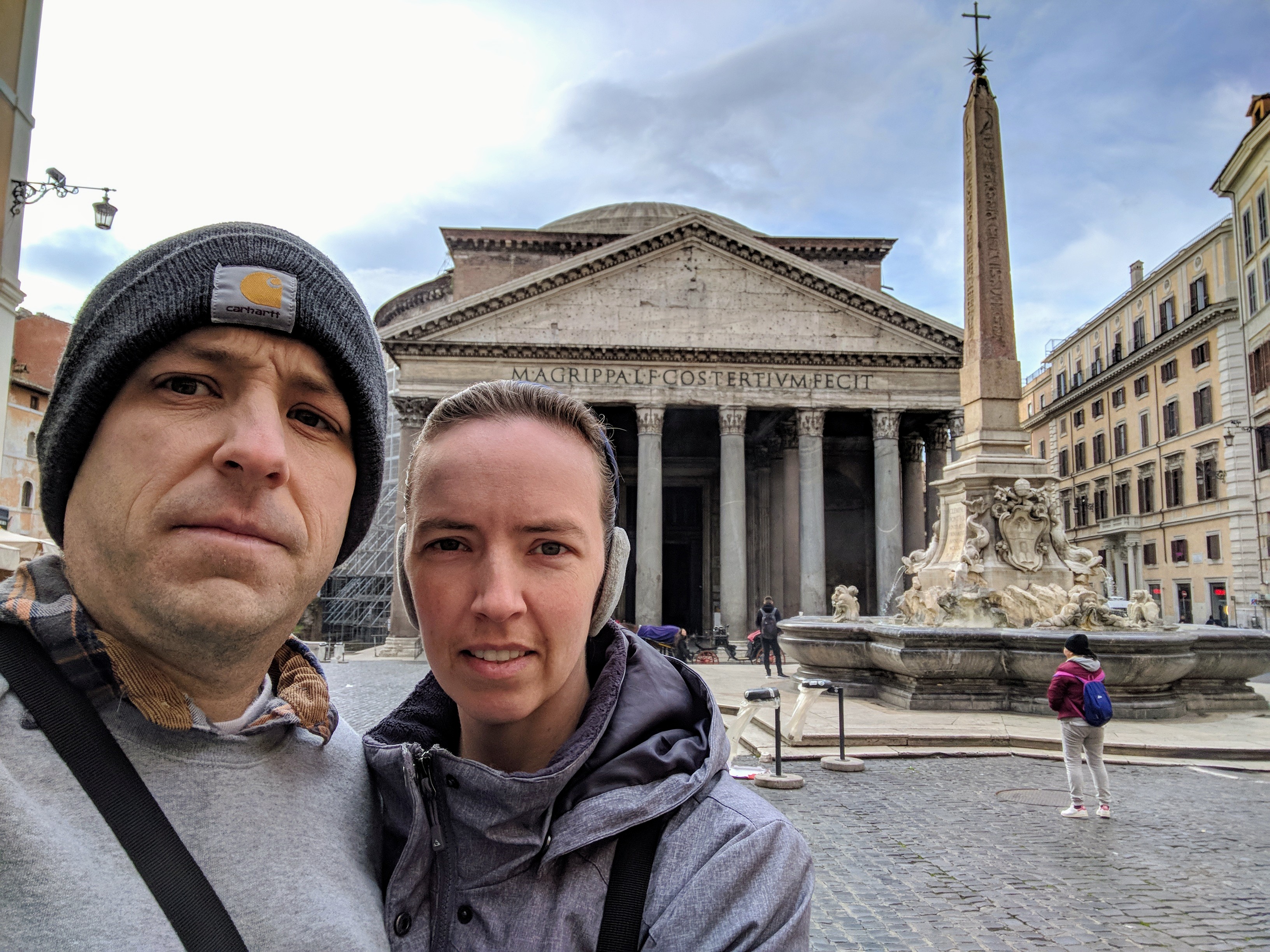
Fontana del Pantheon was fed via terracotta conduit, from the ancient Aqua Virgo aqueduct, which was rebuilt by Pope Nicholas V.
The Egyptian Obelisk was found in the nearby ruins of the Temple of Minerva, a Roman Goddess who in the Roman heirarchy of gods was second only to Jupiter, and thus quite important.
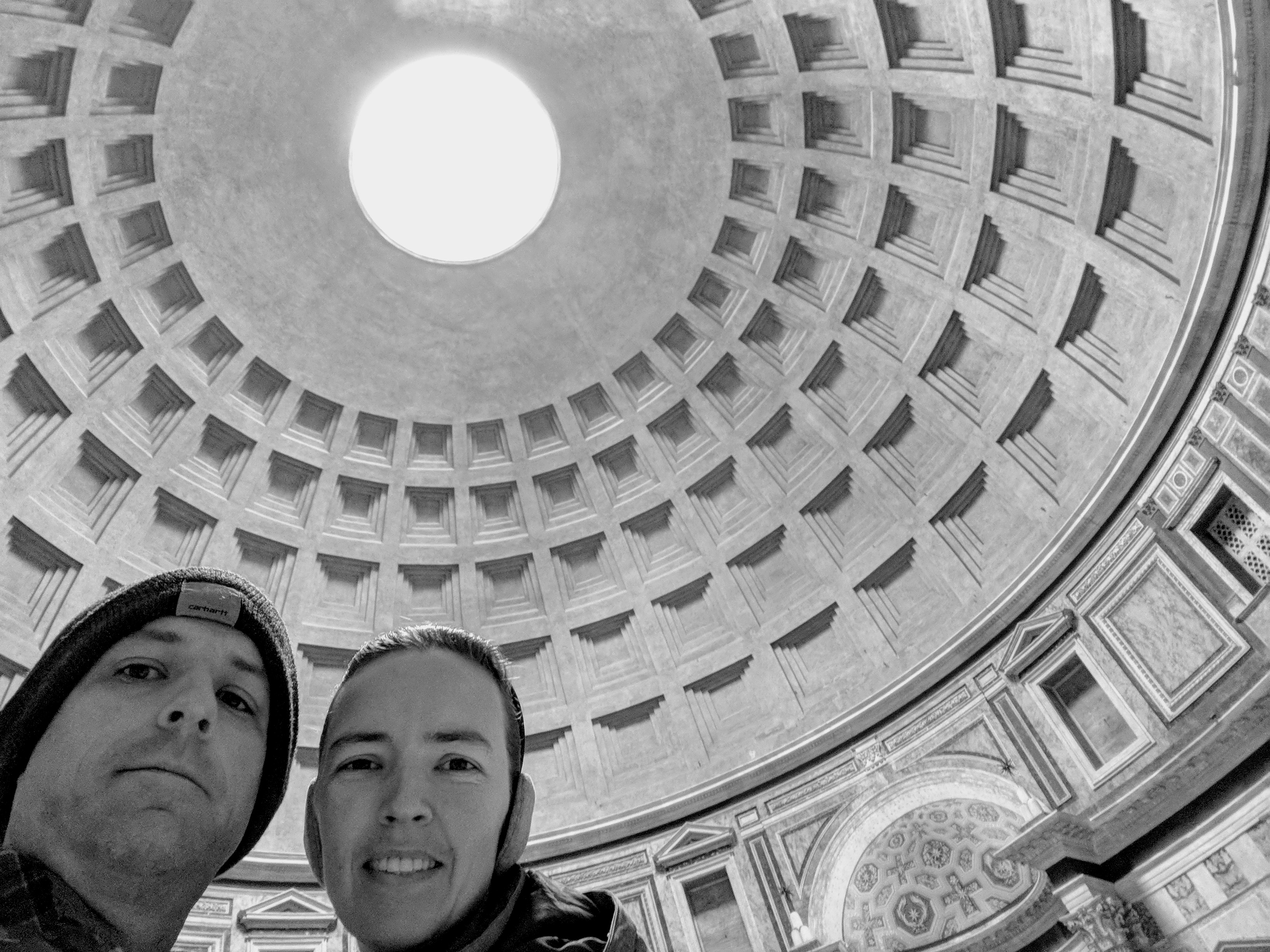
The concrete dome is a feat of engineering. Pantheon was last rebuilt by Emperor Hadrian.
For context Hadrian was the successor to Trajan, whose reign was the zenith of the Roman Empire. Hadrian is perhaps even better known for building Hadrian’s Wall, a fortified wall between what is now Scotland and Northern England.
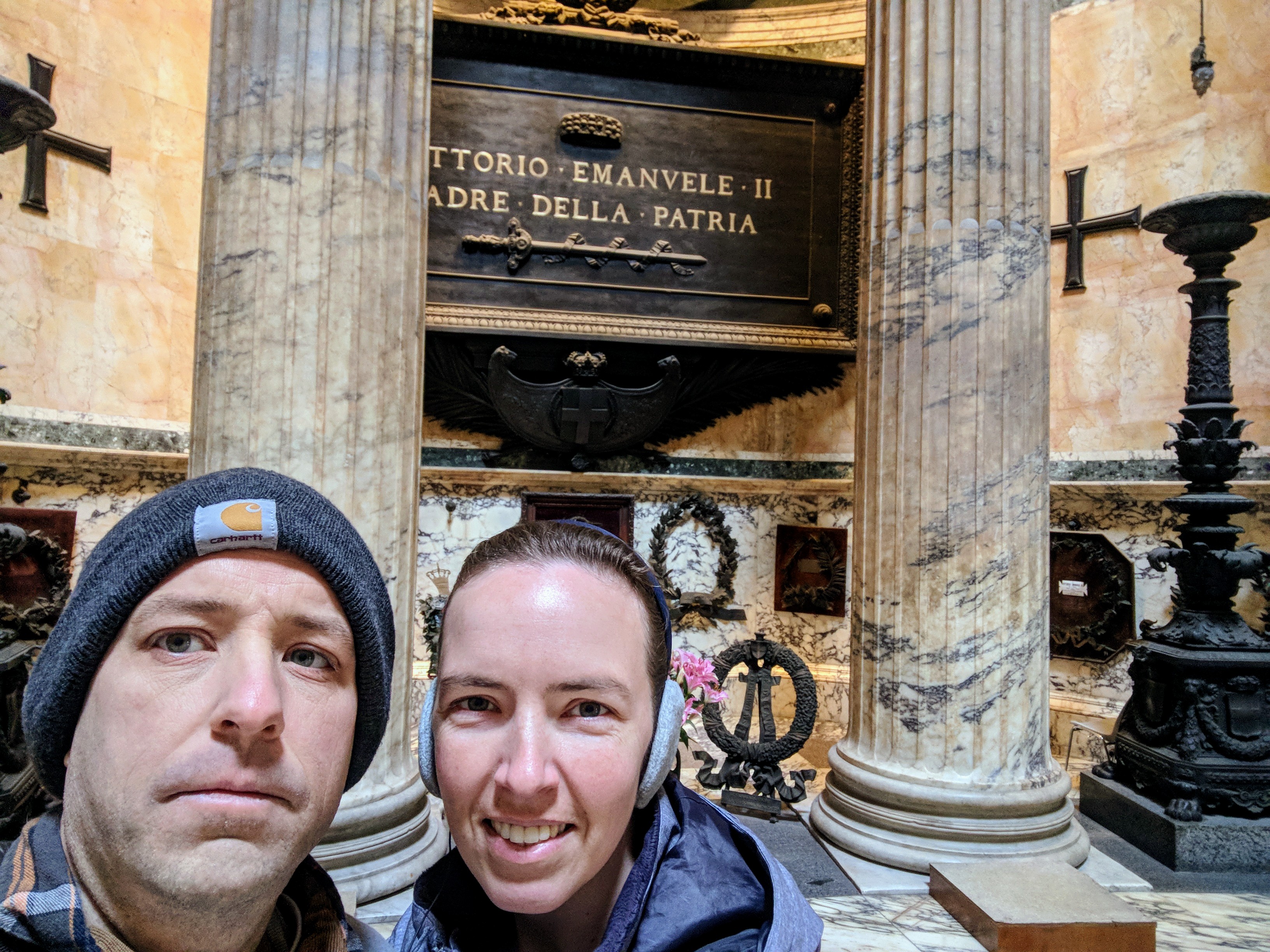
King Victor Emmanuel II was the first King of United Italy.
The 1848 SpringTime of the Peoples was a turning point in history, perhaps the point in time when the Enlightenment ended and the Romantic, or Nationalist era began. If Romanticism was the rise of feelings and emotion, then Nationalism was the political manifestation of that! (Music also became much more expressive, such as Ma Vlast by Smetana).
Thus the unification of Italy (and Germany) was a process of accretion that began in 1848 and culminated in 1871, the rise of nation states that was resisted by the existing dynastic world empires at the time. Although paradoxically this period of time also marked the zenith of the British Empire.
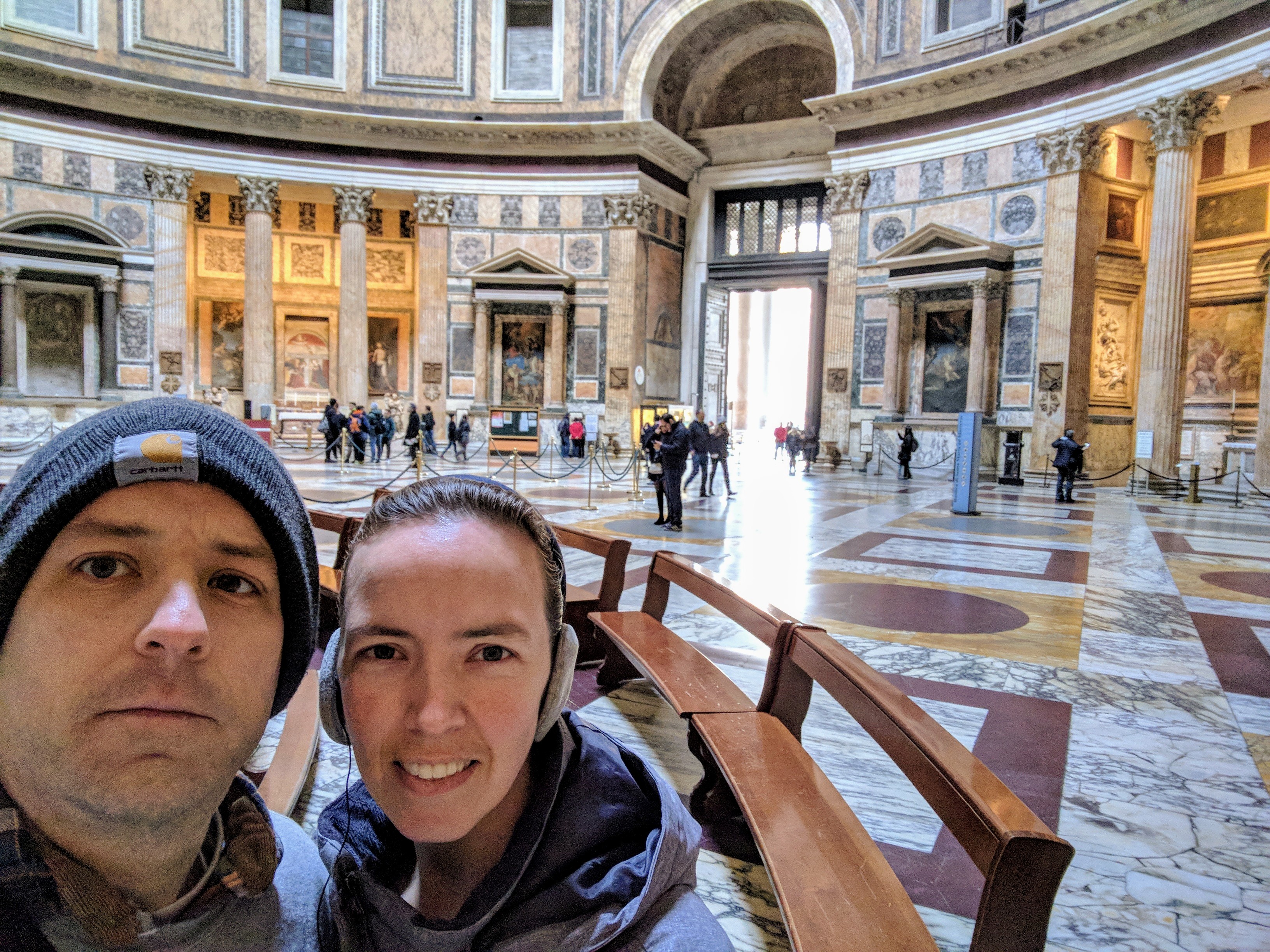
Pantheon is a working Catholic Church.
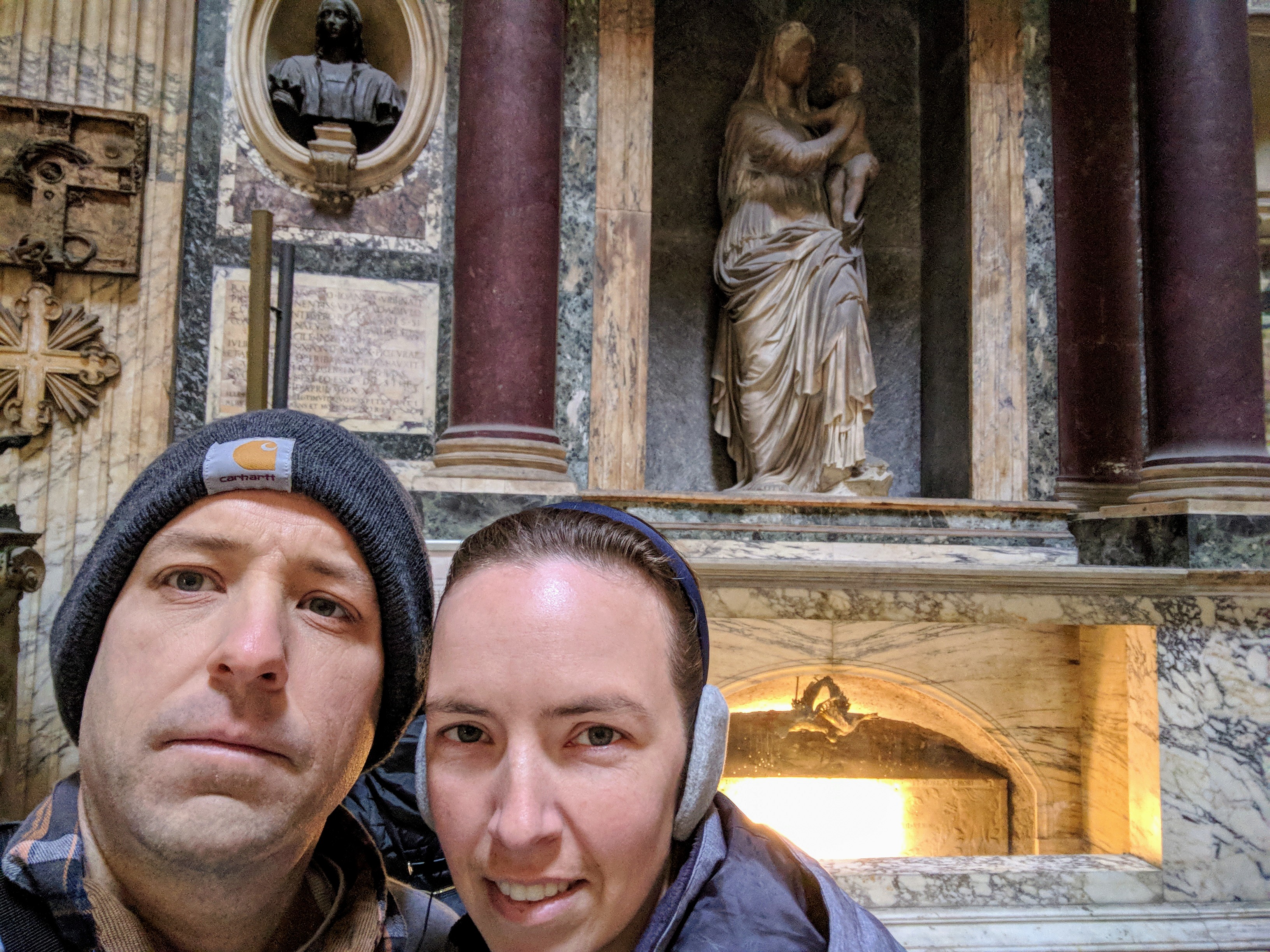
Along with Michelangelo and Leonardo da Vinci, Raphael was one of the three masters of the High Renaissance, a movement which rediscovered the artistic skill of ancient Rome and Greece, which had been absent from Western Europe during the intervening Millennium.
He is perhaps most famous for painting frescos in the Raphael Rooms in Vatican Palace, especially School of Athens. His paintings are known for their symmetry.